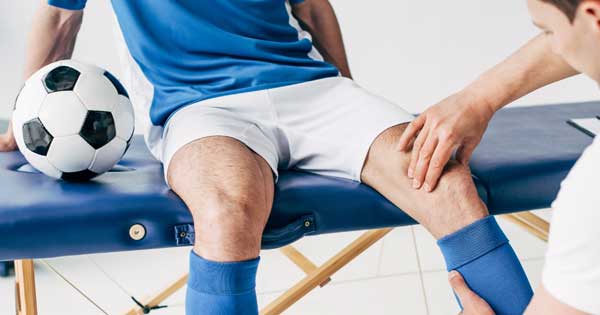Football and Sports Medicine: Injury Prevention and Recovery

In the fast-paced world of football, where every step and every move counts, ensuring the health and fitness of players is of paramount importance. Sports medicine plays a pivotal role in enhancing performance, preventing injuries, and expediting recovery. In this article, we delve into the intricacies of football and sports medicine, focusing on injury prevention and recovery strategies that are essential for athletes at all levels.
The Significance of Sports Medicine in Football
Football, a sport that demands agility, strength, and precision, can take a toll on an athlete’s body. Sports medicine, an interdisciplinary field that combines medical knowledge with physical fitness, is vital for football players. It offers a comprehensive approach to address the physical demands and potential risks associated with the sport.
Injury Prevention Techniques
1. Strength and Conditioning
A solid foundation of strength and conditioning is crucial for football players. These programs are designed to enhance muscle strength, flexibility, and endurance, reducing the risk of injuries. Regular workouts, under the guidance of fitness experts, ensure that players are physically prepared for the rigors of the game.
2. Proper Nutrition
Proper nutrition is the fuel that powers an athlete’s body. Football players need a balanced diet that provides the right nutrients to support their physical demands. Consuming a mix of proteins, carbohydrates, and essential vitamins and minerals is essential for peak performance and injury prevention.
3. Warm-Up and Stretching
A proper warm-up routine is essential before every game and practice session. Dynamic stretching and warm-up exercises increase blood flow, reduce muscle stiffness, and prepare the body for intense physical activity. Stretching post-game aids in muscle recovery and minimizes the risk of cramps and injuries.
Injury Recovery Strategies
1. Rehabilitation
Injuries are an unfortunate part of any athlete’s journey. Sports medicine professionals play a crucial role in the rehabilitation process. Tailored recovery plans, including physical therapy, help injured players regain their strength, mobility, and confidence to return to the field.
2. Rest and Recovery
Rest is as important as training for a football player. Adequate rest allows the body to heal and recover from the stresses of the game. Sports medicine experts monitor players’ rest patterns to ensure they are getting the right amount of downtime.
3. Cutting-Edge Technology
Advancements in sports medicine technology have revolutionized injury recovery. Techniques like cryotherapy, ultrasound therapy, and the use of wearable devices have become integral in monitoring player health and expediting recovery.
In conclusion, the world of football and sports medicine are inextricably linked. To ensure a long and successful career in football, players must prioritize injury prevention and have access to state-of-the-art recovery strategies. Sports medicine professionals, in collaboration with dedicated athletes, are at the forefront of maintaining the health and well-being of those who play the beautiful game.
